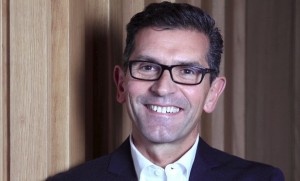The Global 100 2017: world's largest law firms see profits plateau as growth continues to slow
A full run-down of the world's 100 largest law firms by revenue, PEP and lawyer headcount
September 25, 2017 at 07:23 AM
12 minute read
Ever since global economies began their tentative recovery from the financial crisis, the legal industry has debated what form the market might take once things finally settle.
The good news is that the so-called 'new normal' is probably already here. The bad news is that it's characterised by a stifling mixture of flattening growth, widespread uncertainty, intense competition and severe pricing pressure from clients.
If anything, this year's Global 100 survey suggests that conditions for the world's largest law firms are getting even more challenging. Total Global 100 revenue rose just 2.8% in 2016, to $99.3bn – the lowest annual gain since the recession and the second consecutive year of slowing growth. (The group's revenue is still likely to pass $100bn next year for the first time ever, however, requiring an increase of just 0.7% to hit that milestone.)
Having fallen by 2.1% in 2015, the group's average revenue per lawyer (RPL) – a key measure of law firm health and efficiency – remained essentially flat last year at $813,000. Global 100 RPL has increased by just 5.7% over the six years since the end of the recession – far below the rate of inflation.
An even more alarming picture is emerging at the bottom line, with total net income growth plummeting from 8.6% in 2015 to just 2.7% last year.
This resulted in the first decrease in average Global 100 profit per equity partner (PEP) in seven years, with that metric dropping half a percent to $1.59m.
Average profit per lawyer (PPL) – a far more accurate reflection of relative profitability than PEP – also fell slightly across the group to $317,000. As with RPL, the Global 100 have collectively struggled to make meaningful gains in this metric, with total growth of just 9.2% during the past six years.
There are positives to be found, however. Latham & Watkins retained its position as the world's largest law firm by revenue for the third year, having made significant gains across all metrics. The firm's revenue increased for the seventh consecutive year, climbing 6.5% in 2016 to pass $2.8bn on the back of significant investment in London and Germany, where the firm has made a number of high-profile lateral hires.
Despite a lack of overall growth in the market for high-end legal services, Latham has managed to add more than a billion dollars to its revenue since the peak of the recession in 2009, equivalent to a 55% increase during the past seven years. This has not been as a result of merger or bolting on new practices – its total lawyer headcount has only expanded by 21% in the same period.
 In revenue, Latham is now more than $150m ahead of second-placed Baker McKenzie, whose top line rose 1.9% last year to $2.67bn. Bakers chair Paul Rawlinson (pictured) says that geopolitical uncertainty, including the impact of Brexit on Europe, held back revenue growth in the most recent financial year. Meanwhile, the firm's PEP remained flat at $1.3m, primarily because, Rawlinson says, of increases in salary costs – particularly in the US, where associate pay scales jumped – and various investments in technology and innovation. This summer, Bakers launched a 'collaboration space' in Toronto designed for the firm's lawyers to meet with clients and other tech companies, including IBM Canada, to rethink how they service clients.
In revenue, Latham is now more than $150m ahead of second-placed Baker McKenzie, whose top line rose 1.9% last year to $2.67bn. Bakers chair Paul Rawlinson (pictured) says that geopolitical uncertainty, including the impact of Brexit on Europe, held back revenue growth in the most recent financial year. Meanwhile, the firm's PEP remained flat at $1.3m, primarily because, Rawlinson says, of increases in salary costs – particularly in the US, where associate pay scales jumped – and various investments in technology and innovation. This summer, Bakers launched a 'collaboration space' in Toronto designed for the firm's lawyers to meet with clients and other tech companies, including IBM Canada, to rethink how they service clients.
DLA Piper – the world's largest law firm by revenue as recently as 2013 – has dropped two places this year, to fifth, after its revenue fell 2.9% to $2.47bn. It is the first time DLA has placed outside the top three since The American Lawyer started treating its US and international arms as a single firm in our surveys in 2011. DLA has now been overtaken in revenue by both Kirkland & Ellis and Skadden Arps Slate Meagher & Flom.
The largest year-on-year fall in revenue was seen at China's King & Wood Mallesons, whose top line crashed 21%
Kirkland's gross revenue leapt 15% last year to $2.65bn. The firm's PEP also passed $4m for the first time ever, rising nearly 14%, to $4.1m. Kirkland is now the Global 100's fifth most profitable firm by that metric, behind Wachtell Lipton Rosen & Katz (down 12.1% to $5.8m); Quinn Emmanuel Urquhart & Sullivan (up 13.5% to $5.02m); Paul Weiss Rifkind Wharton & Garrison (up 7.2% to $4.38m); and Cravath Swaine & Moore (up 18% to $4.2m).
It is only the second time in Global 100 history that US-based firms occupy the top five spots in the revenue chart. In a sign of both the size of the US legal market and the continued consolidation of the industry worldwide, American firms account for 81 of the Global 100, matching a record set in last year's survey. The remaining places are taken by 12 British firms, three from Canada, two from China, one from Australia and one from South Korea. With France's Fidal, Spain's Garrigues and Dutch firm Loyens & Loeff failing to return to the revenue rankings, there are once again no firms from continental Europe in the Global 100.
At the other end of the spectrum, the largest year-on-year fall in revenue was seen at China's King & Wood Mallesons, whose top line crashed 21% to $806m. This followed the collapse of the firm's European arm, which filed for administration in January.
 UK law firms also had a challenging year, with nine of the 12 UK-based firms in the Global 100 suffering a decline in revenue. (Ashurst, which also recorded a sizeable drop in revenue, is now classed as an Australian law firm for the purposes of this survey following its 2011 combination with Blake Dawson.)
UK law firms also had a challenging year, with nine of the 12 UK-based firms in the Global 100 suffering a decline in revenue. (Ashurst, which also recorded a sizeable drop in revenue, is now classed as an Australian law firm for the purposes of this survey following its 2011 combination with Blake Dawson.)
The disappointing showing by UK firms is largely due to Brexit, although not in the way that you might expect. While the UK's unprecedented decision to leave the European Union has cast a shadow of uncertainty over the market, many UK-based firms remained busy throughout the last financial year, including on Brexit-related matters.
UK firms' figures were instead heavily skewed by currency fluctuations. The weakening of the pound as a result of the Brexit vote actually inflated the results of UK-based firms with large international practices, as foreign revenue was favourably converted into sterling for consolidated accounts. (This currency boost was less pronounced at the bottom line, however. While the exchange rates mean that non-UK revenue is now worth more in sterling terms, so too are non-UK costs such as local office rent and staff salaries.)
Just three UK firms managed to still record top-line gains after their results were converted to dollars
Allen & Overy (A&O), Clifford Chance (CC) and Linklaters posted sizeable top line gains of between 9.8% and 16%, for example, although fellow magic circle firm Freshfields Bruckhaus Deringer struggled to even maintain its revenue in what the firm described as "a challenging year", despite this hefty currency bump. Remove the currency effect and it would have fallen 5.4%. Shortly after Freshfields' results were announced, managing partner Chris Pugh stepped down to return to full-time practice as a litigation partner – a move that partners attributed to the management team's failure to deliver on financial targets.
This positive currency effect then became a negative when the UK firms' results were converted to US dollars for our survey. Since the EU referendum, sterling has dropped from $1.50 to below $1.30. In US dollar terms, the revenue gains of CC and Linklaters became slight falls, while Freshfields ended up with a more than 11% reduction to its top line, sliding from 8th to 14th place in the rankings as a result – its lowest-ever position since our survey began in 1998.
Their performance is a far cry from the dominance of the UK-based firms over the Global 100 during the 2000s. British firms held three of the top five places in the rankings – including the number one spot – every year between 2001 and 2009. The highest-placed British firm in this year's survey is CC, in seventh place and almost $750m behind Latham.
Two UK law firms, Berwin Leighton Paisner and Taylor Wessing, fell out of the Global 100 rankings entirely due to currency exchange. While both firms had reasonably solid years and posted increases in revenue in sterling terms, of 7% and 4.4% respectively, they both suffered falls, of 5.3% and 6%, when their results were converted to US dollars. (US firms Fish & Richardson, Jackson Lewis and Schulte Roth & Zabel also exited the Global 100 this year.)
Just three UK firms managed to still record top-line gains after their results were converted to dollars: A&O, Bird & Bird and Clyde & Co.
 A&O's performance was particularly impressive, capped by a 2.8% increase in revenue (16% in sterling) and a 12% jump in PEP (26% in sterling). A&O managing partner Andrew Ballheimer (pictured) told Legal Week that the firm's breadth of currencies, practices and geographies – it has 44 offices worldwide – provided a natural hedge against what he describes as "volatile" market conditions. The firm also saw strong returns from its business lines that go beyond conventional legal services, including online legal risk management business aosphere and digital derivatives compliance system MarginMatrix.
A&O's performance was particularly impressive, capped by a 2.8% increase in revenue (16% in sterling) and a 12% jump in PEP (26% in sterling). A&O managing partner Andrew Ballheimer (pictured) told Legal Week that the firm's breadth of currencies, practices and geographies – it has 44 offices worldwide – provided a natural hedge against what he describes as "volatile" market conditions. The firm also saw strong returns from its business lines that go beyond conventional legal services, including online legal risk management business aosphere and digital derivatives compliance system MarginMatrix.
Clyde & Co's revenue passed £500m for the first time last year, leaping 14% to £508.1m. While 5% of this growth was attributable to currency fluctuations, it was largely driven by Clydes' continued aggressive international expansion, with the firm opening five new offices in the past financial year – in Chicago, Duesseldorf, Mexico City, Miami and Washington DC. Clydes has also invested particularly heavily in the US in recent years and now has nine offices across the country. The past financial year was also the first full year of revenues from Clydes' 2015 merger with 45-partner Scottish firm Simpson & Marwick.
Bird & Bird broke back into the Global 100 after a one-year hiatus, while the highest-placed debutant is Gowling WLG
Having hit a record £665,000 in 2015, the firm's PEP fell 2% last year, to £650,000. Clydes chief executive Peter Hasson attributed the dip to an 11% increase in partner numbers and "heavy investment" in IT and other systems.
Bird & Bird, meanwhile, broke back into the Global 100 after a one-year hiatus. Unusually for a London-based firm, Bird & Bird reports its financial results in euros, which actually strengthened against the US dollar last year. So while the firm's revenue rose 5%, to €361m, that equated to a 7% increase in our survey, to $411m. Bird & Bird launched an international tax disputes practice in London with the hire of a five-lawyer team from PwC, and also promoted 16 new partners internally – up from nine the previous year.
Bird & Bird is joined in the Global 100 by four other new entrants: Gowling WLG, Blank Rome, Crowell & Moring and Fox Rothschild.
The highest-placed debutant is Gowling WLG, which was formed through the combination of the UK's Wragge Lawrence Graham & Co and Canada's Gowlings in early 2016. The firm's revenue is split almost exactly 50:50 between the two arms, which are not financially integrated.
In an interview at the time of the tie-up, head of international projects Quentin Poole said the firm intended to complete two additional combinations by 2020, with China and Germany high on its list of priorities. Earlier this year, the firm opened an office in Stuttgart, Germany, adding to its existing intellectual property-focused outpost in Munich, which WLG launched in 2008.
Blank Rome, meanwhile, achieved the highest growth in revenue among the entire Global 100, with its top line soaring 22.5% to $422.5m. The firm picked up more than 100 lawyers from Washington DC-based firm Dickstein Shapiro, which went out of business in February 2016. In what has been a remarkable period of growth, about 60% of Blank Rome's 564 lawyers have joined the firm since 2011.
Looking ahead, the widespread uncertainty across core jurisdictions, continued global consolidation and disruption brought about by new technologies and alternative providers makes future market conditions all but impossible to predict.
But the current environment of low growth and high competition has been around for long enough to suggest that it isn't going away anytime soon. In fact, the trend of the past few years suggests that the pressures facing international law firms are only likely to intensify.
Click on the links below for the full rankings by revenue, PEP and lawyer headcount.
This content has been archived. It is available through our partners, LexisNexis® and Bloomberg Law.
To view this content, please continue to their sites.
Not a Lexis Subscriber?
Subscribe Now
Not a Bloomberg Law Subscriber?
Subscribe Now
NOT FOR REPRINT
© 2025 ALM Global, LLC, All Rights Reserved. Request academic re-use from www.copyright.com. All other uses, submit a request to [email protected]. For more information visit Asset & Logo Licensing.
You Might Like
View All
KMPG Moves to Provide Legal Services in the US—Now All Eyes Are on Its Big Four Peers

International Arbitration: Key Developments of 2024 and Emerging Trends for 2025
4 minute read
The Quiet Revolution: Private Equity’s Calculated Push Into Law Firms
5 minute read
'Almost Impossible'?: Squire Challenge to Sanctions Spotlights Difficulty of Getting Off Administration's List
4 minute readTrending Stories
- 111th Circuit Rejects Trump's Emergency Request as DOJ Prepares to Release Special Counsel's Final Report
- 2Supreme Court Takes Up Challenge to ACA Task Force
- 3'Tragedy of Unspeakable Proportions:' Could Edison, DWP, Face Lawsuits Over LA Wildfires?
- 4Meta Pulls Plug on DEI Programs
- 5On the Move and After Hours: Meyner and Landis; Cooper Levenson; Ogletree Deakins; Saiber
Who Got The Work
Michael G. Bongiorno, Andrew Scott Dulberg and Elizabeth E. Driscoll from Wilmer Cutler Pickering Hale and Dorr have stepped in to represent Symbotic Inc., an A.I.-enabled technology platform that focuses on increasing supply chain efficiency, and other defendants in a pending shareholder derivative lawsuit. The case, filed Oct. 2 in Massachusetts District Court by the Brown Law Firm on behalf of Stephen Austen, accuses certain officers and directors of misleading investors in regard to Symbotic's potential for margin growth by failing to disclose that the company was not equipped to timely deploy its systems or manage expenses through project delays. The case, assigned to U.S. District Judge Nathaniel M. Gorton, is 1:24-cv-12522, Austen v. Cohen et al.
Who Got The Work
Edmund Polubinski and Marie Killmond of Davis Polk & Wardwell have entered appearances for data platform software development company MongoDB and other defendants in a pending shareholder derivative lawsuit. The action, filed Oct. 7 in New York Southern District Court by the Brown Law Firm, accuses the company's directors and/or officers of falsely expressing confidence in the company’s restructuring of its sales incentive plan and downplaying the severity of decreases in its upfront commitments. The case is 1:24-cv-07594, Roy v. Ittycheria et al.
Who Got The Work
Amy O. Bruchs and Kurt F. Ellison of Michael Best & Friedrich have entered appearances for Epic Systems Corp. in a pending employment discrimination lawsuit. The suit was filed Sept. 7 in Wisconsin Western District Court by Levine Eisberner LLC and Siri & Glimstad on behalf of a project manager who claims that he was wrongfully terminated after applying for a religious exemption to the defendant's COVID-19 vaccine mandate. The case, assigned to U.S. Magistrate Judge Anita Marie Boor, is 3:24-cv-00630, Secker, Nathan v. Epic Systems Corporation.
Who Got The Work
David X. Sullivan, Thomas J. Finn and Gregory A. Hall from McCarter & English have entered appearances for Sunrun Installation Services in a pending civil rights lawsuit. The complaint was filed Sept. 4 in Connecticut District Court by attorney Robert M. Berke on behalf of former employee George Edward Steins, who was arrested and charged with employing an unregistered home improvement salesperson. The complaint alleges that had Sunrun informed the Connecticut Department of Consumer Protection that the plaintiff's employment had ended in 2017 and that he no longer held Sunrun's home improvement contractor license, he would not have been hit with charges, which were dismissed in May 2024. The case, assigned to U.S. District Judge Jeffrey A. Meyer, is 3:24-cv-01423, Steins v. Sunrun, Inc. et al.
Who Got The Work
Greenberg Traurig shareholder Joshua L. Raskin has entered an appearance for boohoo.com UK Ltd. in a pending patent infringement lawsuit. The suit, filed Sept. 3 in Texas Eastern District Court by Rozier Hardt McDonough on behalf of Alto Dynamics, asserts five patents related to an online shopping platform. The case, assigned to U.S. District Judge Rodney Gilstrap, is 2:24-cv-00719, Alto Dynamics, LLC v. boohoo.com UK Limited.
Featured Firms
Law Offices of Gary Martin Hays & Associates, P.C.
(470) 294-1674
Law Offices of Mark E. Salomone
(857) 444-6468
Smith & Hassler
(713) 739-1250









